A renowned economist, Bismarck Rewane, has said many Nigerians are becoming mentally unstable following the economic hardship that has been visited on them with the removal of fuel subsidy.
He said the situation is worse in Lagos where mentally unstable people filled the streets due to poverty and hardship across the land.
Rewane added that Nigerians had been pushed to the wall and “some of them walk across the road even in moving traffic.”
The economist also noted that people were not interested in budgetary figures rolled out by the President Bola Tinubu-led government if the prices of basic commodities like rice, bread, and garri don’t go down.
Rewane, the Managing Director of Financial Derivatives Company Limited, made this known on Thursday during an interview on Channels TV.
He said, “You will notice that on the streets of Lagos in particular, the number of lunatics has increased and part of it is driven by poverty. Many mental health issues. People are pushed to the wall. Some of them walk across the road even in moving traffic.”
Earlier he had said, “In the end, budgetary arithmetics, budgetary mathematics in economics is of no use to anybody except when by this time, six months’ time, if we are buying rice at N40,000 a bag rather than N60,000 a bag, if we are buying bread N900 a big loaf instead of N1,300 which we are doing today. If we are buying garri at lower prices.
“The people are not interested in whether the budget is balanced and what the debt is. How does it (the budget) affect their day-to-day livelihood? That is the key thing.”
Rewane, analysing the budget proposal, said in the final analysis, the people are not interested in figures but want to feel the impact of the government’s economic policies as many are under pressure.
He added, “And as you know, prices are up and people are under tremendous pressure,” he said, adding that the rate of poverty in the country is driving people mad.”
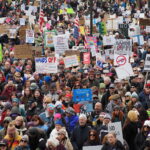

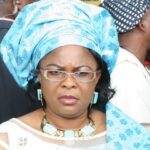
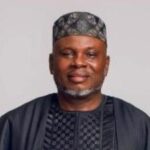

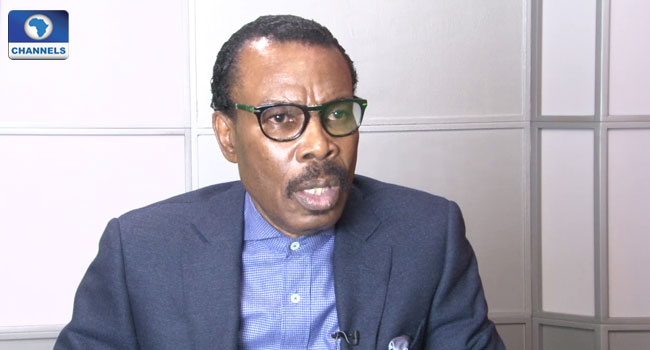
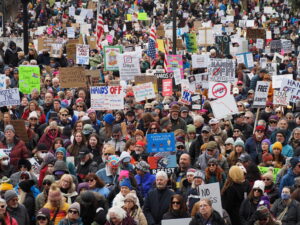
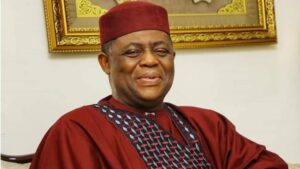
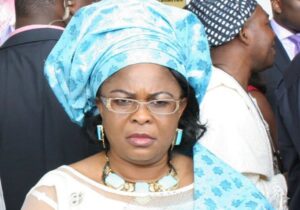
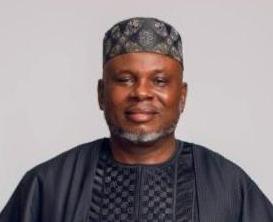
More Stories
Massive protest against Trump hots up in major U.S. cities
Tinubu considers Fani-Kayode, others for ambassadorial appointments
NBA intervenes, as detention of 15 domestic aides accused of theft from ex-First Lady Patience Jonathan, lingers